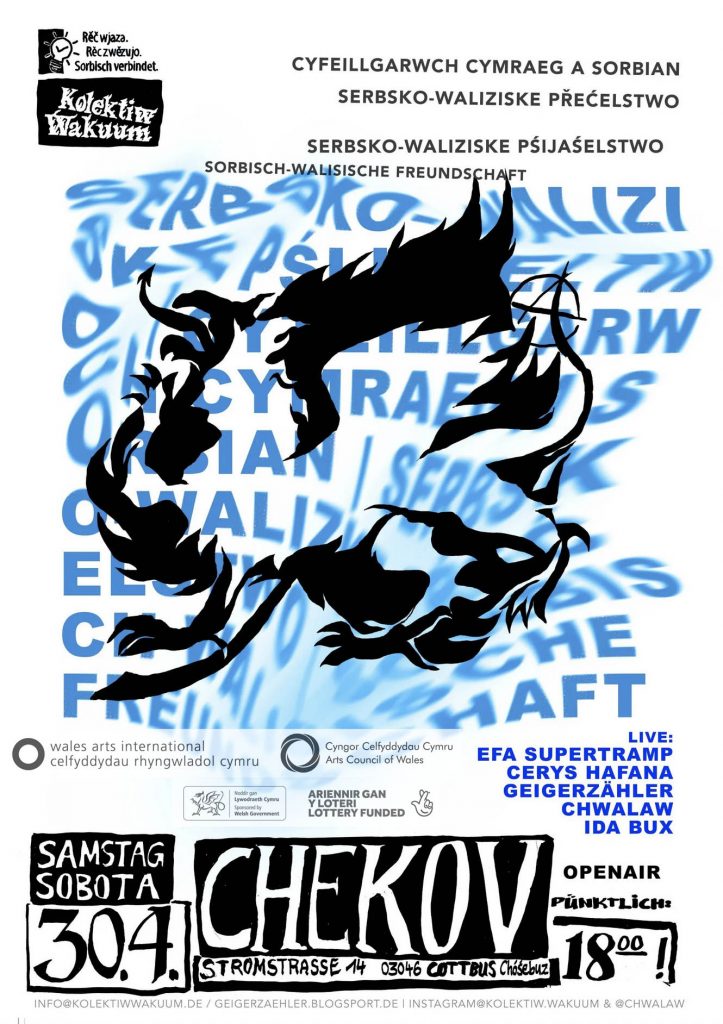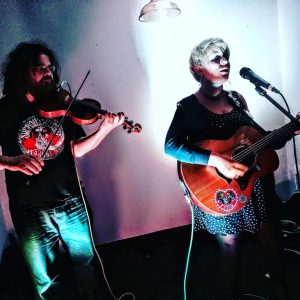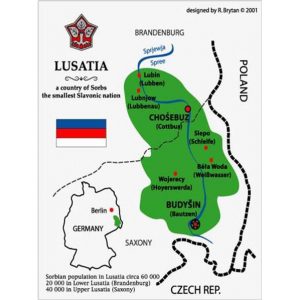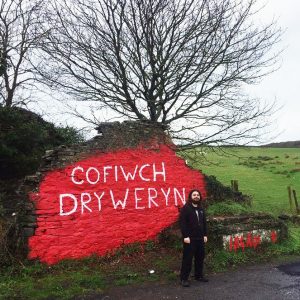Day 2
It was a sunny Tuesday morning in Cottbus, Nick and I went for a short walk down by the river and spotted some red squirrels and a deer before returning in time for our 10am breakfast meeting. We all did covid tests as we felt nervous we might be struck in some other way by this interfering infectious virus! We were luckily all negative, so over breakfast reflected on the previous day and tried to focus on what we would do for the day – one thing we all agreed on is that we would take a break in the middle of the day, as yesterday we had just worked all day! We knew that in the afternoon Stefan (artist name is Stoi), a rapper who writes in German and Sorbian would be coming and we wanted him to put some verses down so Sophia decided to continue working on her beats, while Nick recorded another Sorbian melody with Paul on violin.
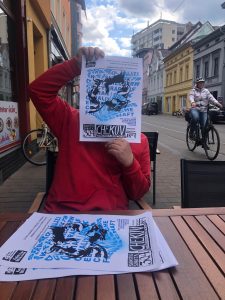
While the others were busy working on music, Hella (from kollektiwwakuum) and I discussed how we both felt there was great things happening in Sorbian and Welsh culture at the moment. Somehow it feels like we can embrace our minority cultures whilst also being feminist, queer, anti-authoritarian etc. The previous night we had been discussing some of the (sometimes extremely) problematic themes of some of the lyrics of the old songs from Paul’s grandmother’s Sorbian songbook – lyrics such as “you won’t need any water ever again because you will cry so much when you marry me” and suggesting to hitting women once they marry you, Sophia had got inspired by how fucked up they were and decided she would like to rap over the melody of the song (which Nick had added beats to), with a new feminist version. As there were a lot of Sorbian rappers getting involved, I really felt we needed some Welsh rap too – I knew who I needed to contact. The amazing Izzy Rabey, I knew she could fit into the project perfectly because of her feminist and queer background – I sent her a quick message and she immediately replied saying she was keen! I sent her over a beat to see if she liked it and she said she did so I added some vocals to the chorous and Nick and I made a new arrangement of the song and sent it back to her. The song had a kind of middle-Europe, middle-ages vibe due to the Sorbian melody, so as we’d been discussing myths of Sorbian region and Wales earlier in the day, the lyrics of the chorous I created were about how the heroes in our myths are always men, and that I wanted to hear about the witches and resisters not the ones who upheld hierarchy. By this morning [Wednesday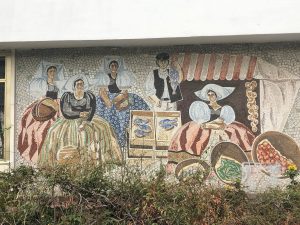 ] Izzy had replied with 16 bars of awesome verses on a similar theme about the Mabinogi.
] Izzy had replied with 16 bars of awesome verses on a similar theme about the Mabinogi.
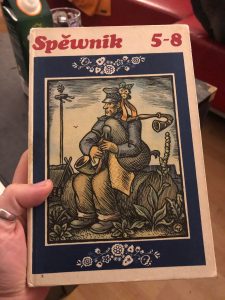
We took an afternoon break by heading to Hella’s mum’s shop which sells over 250 variations of tea, we saw a bit more of the town and postered our gig on Saturday where we will showcase some of the stuff we’ve come up with. When we came back to our studio space, Stoi soon joined with us and Nick played him some of the beats/tracks we had which he could contribute to. Sophia and Stoi decided to go and brainstorm together and ended up creating a kind-of battle rap between upper and lower Sorbian (which are two different languages), which they informed me had never really spoken to each other in previous generations as they considered each other so different and had so many prejudices against each other. They spent the evening writing and practicing their verses. I was also in touch with Cerys to see if her covid tests were negative yet but unfortunately they weren’t, it seems less and less likely that she will join us here but on the other hand Gregor from the band Serbska Reja had been on a hunt around Cottbus musicians searching for a harp we could hire/borrow and had found a celtic harp we could borrow for two days! If she doesn’t end up coming we have left space in songs for her to add when we’re back in the UK, and also still have some beats we think harp could be added to.
For dinner Paul made us another Sorbian special dish – Kartoffeln mit Quark (and even made a vegan version for me). It was super tasty. Just before we went to bed, Paul recorded one last violin part of an original song of his which he wanted Maja from KollektiwWakuum to sing on tomorrow.
